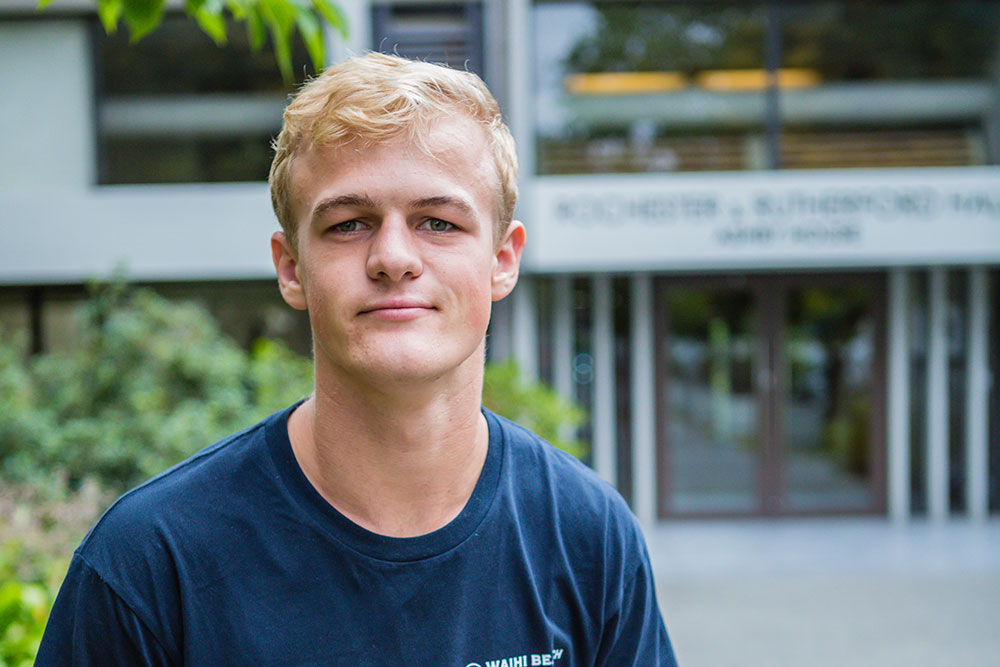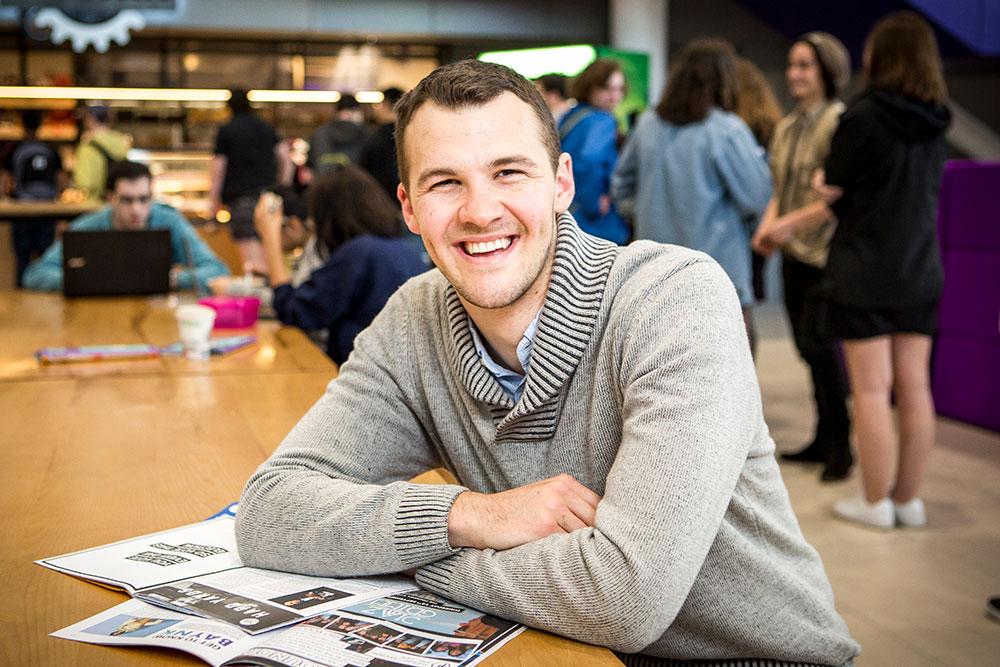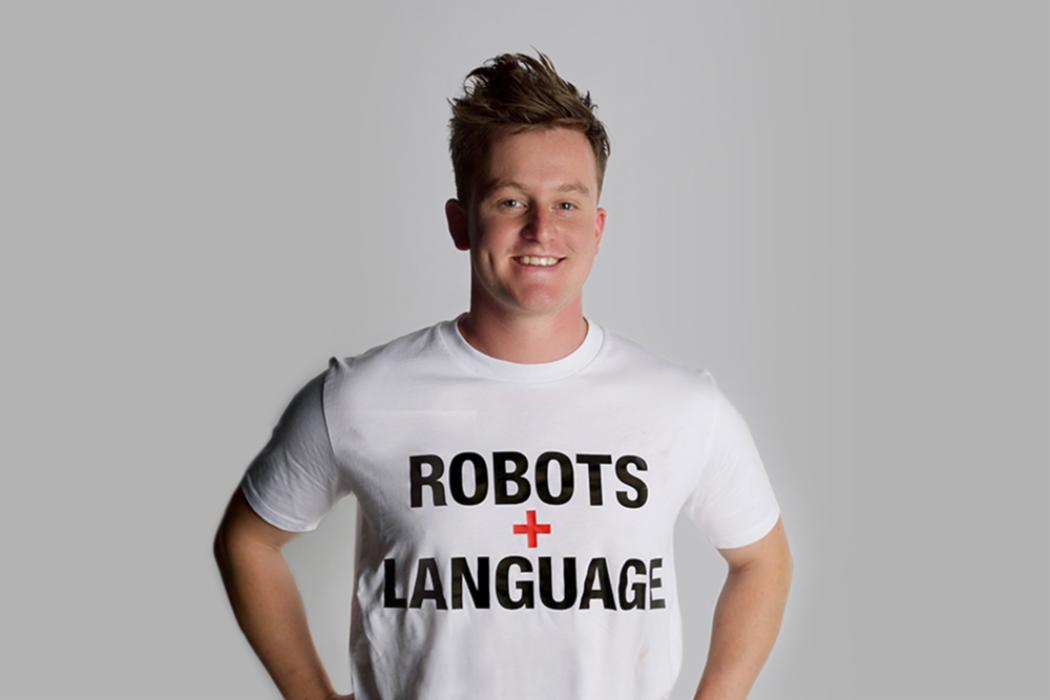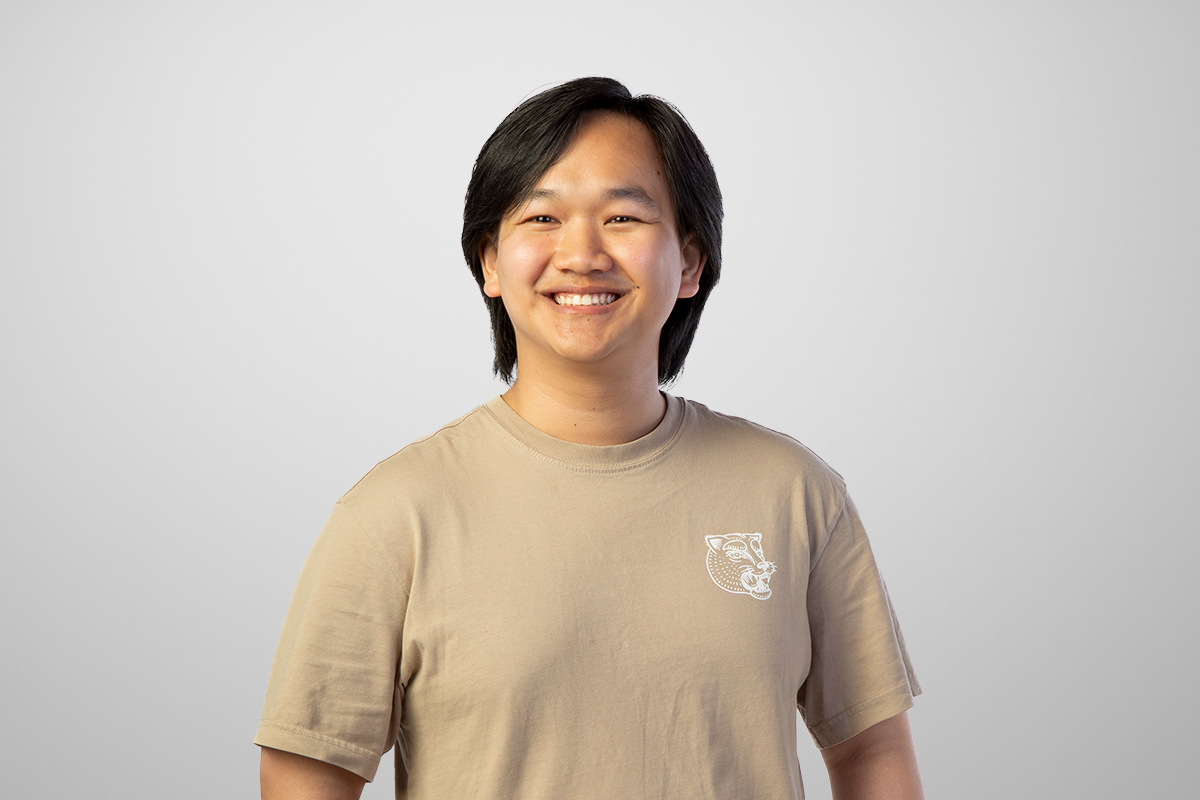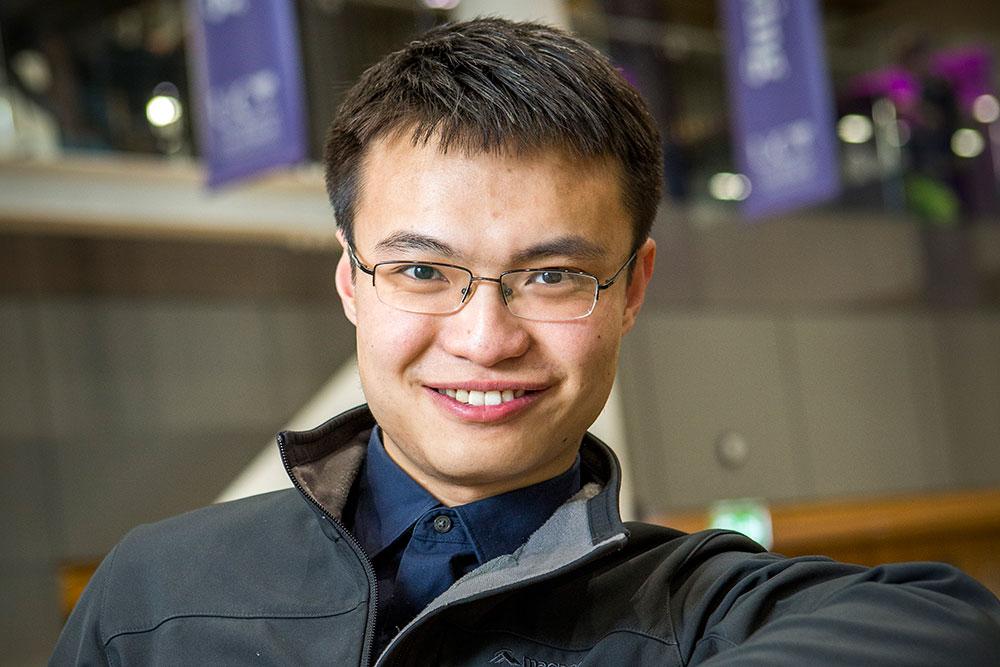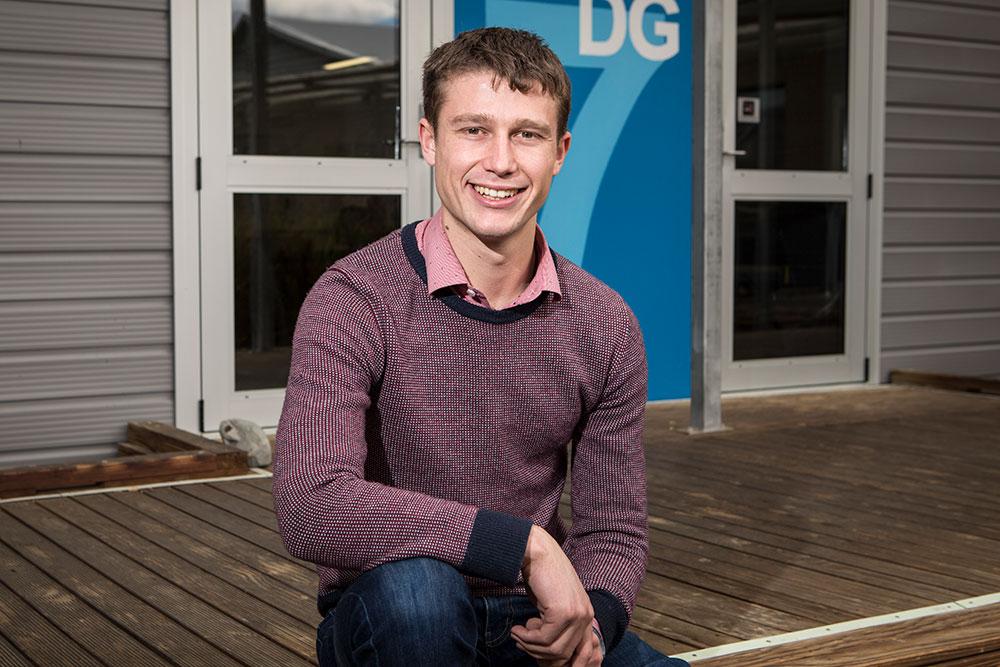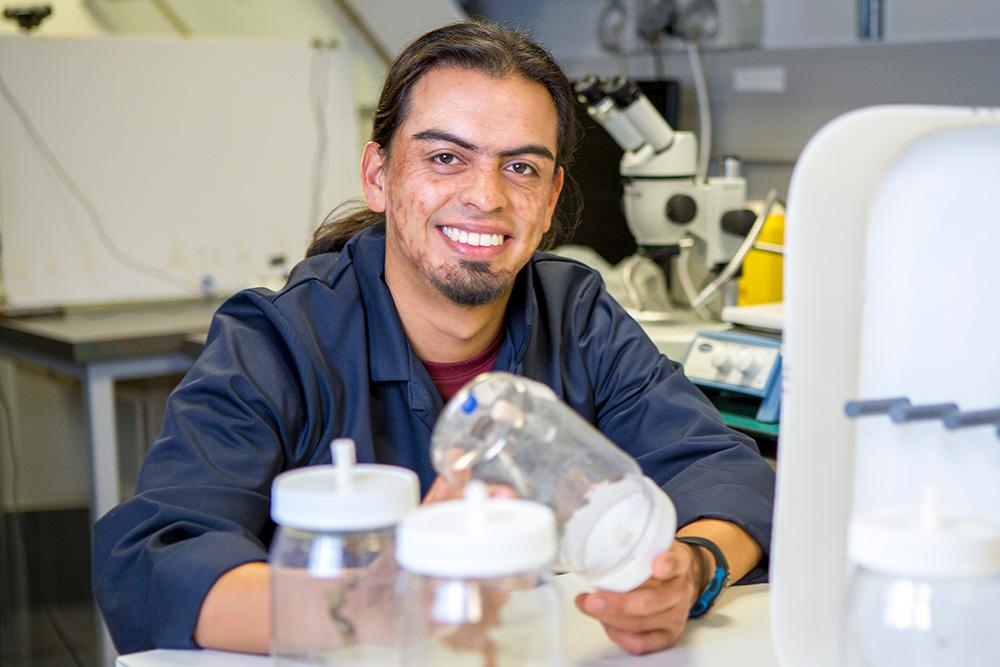Bachelor of Engineering with Honours in Mechatronics Engineering
PhD in Mechatronics Engineering
Matthew had an early taste in robotics during high school, with a science project building a basic search-and-rescue robot. Ever since, Matthew has looked forward to each opportunity creating systems that can "move on its own in the real world".
"I enjoyed the problem-solving and design aspect of that project so much that I decided I wanted to build a career in robotics research and development. I studied Mechatronics because it’s the closest thing in NZ to a robotics degree," he says.
UC was recommended by friends for its project-based Mechatronics degree. It was a ‘no-brainer’ for Matthew to decide on enrolling here to gain practical experience, made even easier by earning an Undergraduate Entrance Scholarship and Engineering High Achievers Award for his school results, and a UC Emerging Leaders Scholarship involving a leadership programme.
According to Matthew, Mechatronics is a great choice for any undergrad Engineering student wanting to experience a wide range of skills from the other Engineering disciplines, including Software, Mechanical, Electrical and Electronic, and Computing Engineering.
"You learn a bit of everything, get to do all the coolest projects, and your degree is more flexible at the end," he says. "Being exposed to more disciplines also increases the chances of finding something you really enjoy in engineering. Few engineering jobs follow a “pure” discipline these days. Most jobs require basic knowledge of programming, electronics, mechanics, or a combination of all three."
Matthew is now studying towards a PhD, focusing on the area of mobile robotics product design.
"I’m doing a PhD because it’s very similar to Research & Development, and because it’s virtually a prerequisite for industry R&D.
"I enjoy the practical and hands-on aspect, problem solving, and design, especially designing something new and unique. With the broad range of disciplines you deal with in robotics (electrical, mechanical, software), you’re rarely doing the same thing for long. I may be reading journals and textbooks for research, planning system integration, machining parts in a workshop, programming, or collecting and analysing data."
So far, Matthew has earned himself a number of research scholarships towards his PhD; including a UC Summer Research Scholarship during undergrad that saw him take part in designing an omnidirectional robot. The experience has been huge towards his goal for a career in robotics R&D.
"Over three months we designed and built an omnidirectional robot from scratch. In true mechatronics fashion this involved a little bit of everything, such as designing the prototype in CAD software, 3D-printing parts, machining the frame, wiring the electronics, and programming the motor drivers in C."
The supervisor for the project later set up Matthew’s own PhD research in a similar field – creating autonomous robots that use SLAM technology (Simultaneous Localisation and Mapping). "It needs to be able to move around its environment, figure out where it is in said environment, see and avoid obstacles, and all without any input from human beings," he says.


